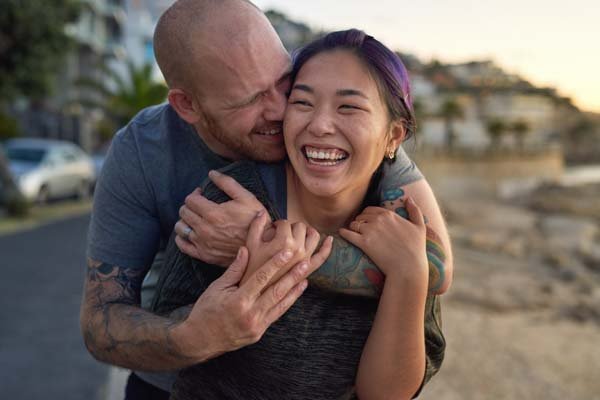Most people become defensive with good intentions.
You’re not trying to start a fight—you’re trying to end one.
You’re trying to get your partner to understand where you’re coming from.
To see your side of the story.
To realize that they’ve misunderstood you.
But here’s the problem:
Defensiveness doesn’t stop arguments.
It fuels them.
It rarely leads to resolution. And it almost never leads to feeling understood.
Instead, it keeps the fight going—and makes it harder for either of you to feel safe or seen.
What Is Defensiveness?
Defensiveness is a self-protective response that usually sounds like:
“That’s not what I meant!”
“You’re twisting my words.”
“Well, you’re not perfect either!”
“You’re just being too sensitive.”
The underlying intention might be honest:
you want to clarify, explain, or feel heard.
But what your partner usually hears is:
“I don’t care about how you feel. Let me tell you why you’re wrong.”
Defensiveness shifts the focus away from their hurt—
and places it back onto your experience, your motivations, and your pain.
This often leaves your partner feeling dismissed, unseen, or invalidated.
The Cost of Defensiveness
When both partners get defensive, the conversation usually spirals like this:
Partner A brings up a hurt or concern.
Partner B defends or explains.
Partner A feels unheard and escalates.
Partner B doubles down or retaliates.
Now, Partner A gets defensive in return.
And suddenly, you're fighting about how you're fighting—
not about the original issue at all.
But What If You Also Have a Complaint?
Here’s the tricky part.
Sometimes your partner is upset, and you genuinely feel like they’ve missed the bigger picture—
maybe you’re hurting too. Maybe the story they’re telling isn’t fully fair.
And maybe you’re right.
But here’s what’s also true:
There’s an order of operations when it comes to emotional repair.
If you want your partner to truly listen to your experience,
you first need to help them feel heard about theirs.
This doesn’t mean you’re wrong.
It doesn’t mean their feelings are more important.
It just means they can’t take in your perspective while they’re still hurting and raw from their own.
A Better Sequence: Validation First, Then Share
So what do you do instead of getting defensive?
You slow the moment down. And you try something like this:
“I didn’t realize how much that impacted you. I’m really sorry that’s how it felt.
I want to understand more. Can we talk about it?”
Then—later, once the emotional heat has cooled—circle back:
“Can I share something that was also really hard for me? I want you to understand where I was coming from too.”
This approach creates space for both partners' realities to exist.
No one has to be the bad guy.
You each get to be seen and known.
But it starts by tending to the wound in front of you—before sharing the one inside of you.
A Note on the “I Feel” Trap
One last thing.
Sometimes people think starting with “I feel…” gives them license to say anything.
But “I feel like you’re always screwing up” isn’t a feeling.
It’s a judgment, wrapped in emotional language.
John Gottman, renowned relationship researcher, describes this as part of two of the Four Horsemen of relationship breakdown:
Criticism
Contempt
So instead of:
“I feel like you don’t care.”
Try:
“I feel hurt and alone when I don’t get a response.”
Primary feelings like hurt, fear, loneliness, or sadness
draw your partner closer.
Secondary emotions like anger or sarcasm usually push them away.
The Bottom Line
You don’t have to choose between being heard and being kind.
But there is an order to it.
If you want your partner to understand what’s going on for you,
start by showing that you understand what’s going on for them.
And then—when the storm has passed—invite them into your experience,
not with blame, but with truth and vulnerability.
If you’re needing help with sharing your feelings, reach out, and let’s make sense of what’s happening — together.
It’s best to email me via my contact page or schedule a free 30-minute consultation where you can pick my brain and see how I would help you with your relationship.



